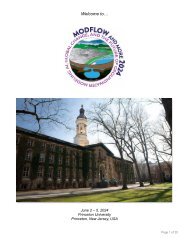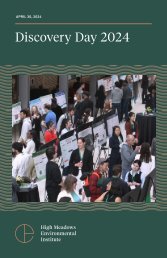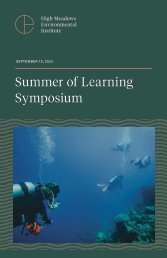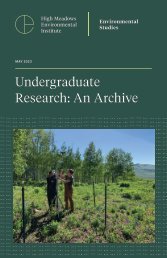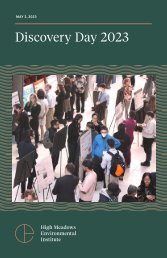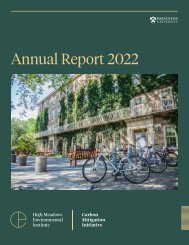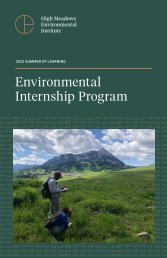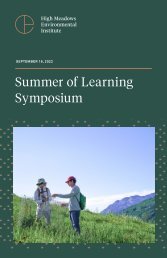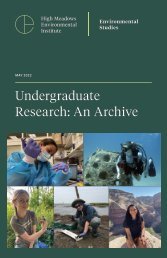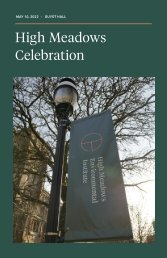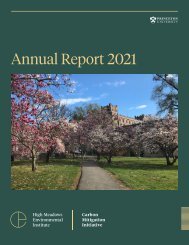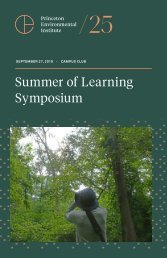Environmental Internship Program - 2023 Booklet
Create successful ePaper yourself
Turn your PDF publications into a flip-book with our unique Google optimized e-Paper software.
Kennedy Primus ’24<br />
AFRICAN AMERICAN STUDIES<br />
Certificate: <strong>Environmental</strong> Studies<br />
FOOD SYSTEMS<br />
AND HEALTH<br />
PROJECT TITLE<br />
Farm Project Field<br />
Assistant<br />
ORGANIZATION(S)<br />
Rubenstein Lab,<br />
Department of Ecology<br />
and Evolutionary Biology,<br />
Princeton University<br />
LOCATION(S)<br />
Princeton, New Jersey<br />
MENTOR(S)<br />
Daniel Rubenstein,<br />
Class of 1877 Professor<br />
of Zoology, Emeritus,<br />
Professor of Ecology and<br />
Evolutionary Biology,<br />
Emeritus; Gina Talt,<br />
Project Manager, Food<br />
Systems, Office of<br />
Sustainability<br />
Our project aimed to understand the mutualisms<br />
present in the Native American agricultural<br />
tradition of the “three sisters,” corn, beans and<br />
squash. My team and I maintained our study<br />
site and monitored plant growth using Arable<br />
sensors. We used sensors to track changes in<br />
vegetation cover, temperature, precipitation<br />
and other variables. We also measured soil<br />
moisture and identified populations of insects.<br />
I learned how to analyze data and apply it to<br />
crop development. We found that factors such as<br />
weed pressure inflated the estimated vegetation<br />
cover. I was fascinated by the concept of growing<br />
degree days, which links temperature to plant<br />
growth. By using Arable software, I learned<br />
how corn plants develop new leaves after<br />
experiencing daily temperatures within a certain<br />
range over time. In the future, I hope to engage<br />
with sustainability and food systems within the<br />
environmental policy field. After participating in<br />
this internship program, I would like to research<br />
how using agricultural methods like the three<br />
sisters could impact food systems across different<br />
communities.<br />
60




